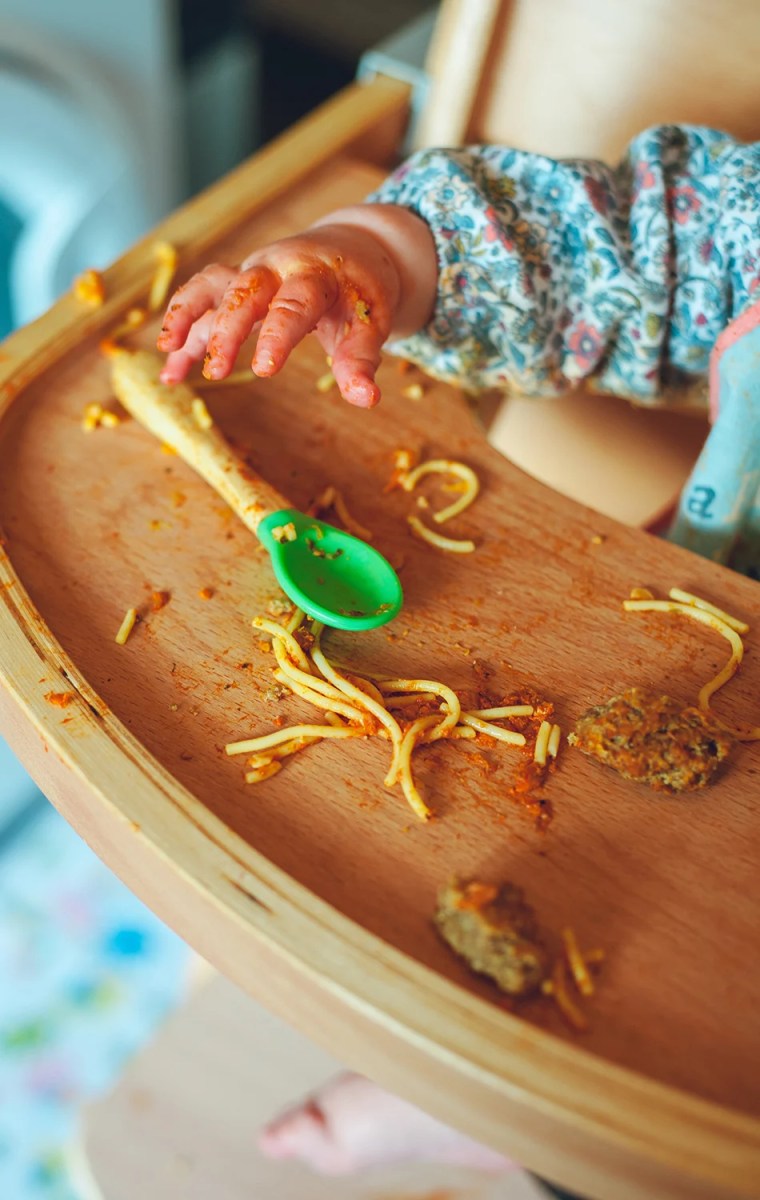Here’s What You Need To Know:
- A baby’s caloric intake varies greatly depending on their age.
- Rather than counting calories, we recommend focusing on simply allowing your baby to eat until they are full, which is when they begin to refuse food.
- As your baby begins to consume more solid food, the amount of milk they drink will begin to decrease.
- The key to your baby growing at a steady and healthy rate is simply making sure they eat a whole, balanced diet.
How Many Calories?
A baby’s caloric intake varies greatly depending on their age. Their age determines what they’re able to eat, as well as their weight and general interest in food. All babies develop at different rates and some may go through phases where feeding is either very easy or very difficult.
Babies aged 0-1 should receive approximately 90-120 calories per kg in body weight. Children aged 1-7 should receive approximately 75-90 calories per kg in body weight. Body size varies based on gender and genetics. Below are the proper growth rates for your little one.




1-4 months:
They should gain 1 1⁄2 to 2 pounds each month, while growing about 1 to 1 1⁄2 inches.
4-7 months:
They should gain 1 to 1 1⁄2 pounds per month and grow about 2 to 3 inches in length. Breastfed babies tend to be chubbier than formula-fed babies during these months.
8 months:
By 8 months, the average boy will weigh between 14 1⁄2 and 17 1⁄2 pounds, while girls will probably weigh about a half-pound less.
1 Year:
At 1 year of age, the typical child weighs about 3 times their birth weight. Breastfed babies are typically leaner than formula-fed babies at this time.
Do I Need to Count How Many Calories My Baby is Consuming?
Rather than counting calories, we recommend focusing on simply allowing your baby to eat until they are full, which is when they begin to refuse food. Unlike adults, babies don’t eat because they are bored or feel like they have to. Babies will only eat if they are truly hungry, so if your baby rejects food, it’s likely because they’re just not hungry.
Growth spurts during this period can cause fluctuations in appetite. The amount of milk that they should be drinking correlates with how much food they are eating. As your baby begins to consume more solid food, the amount of milk they drink will begin to decrease.

Summary
Rather than counting calories or measuring out portion sizes, it’s important to not stress. The key to your baby growing at a steady and healthy rate is simply making sure they eat a whole, balanced diet.
Your baby’s pediatrician will guide you along the way to make sure that your baby is growing at an adequate rate. Your job is to simply give your baby the most nourishing foods possible.











